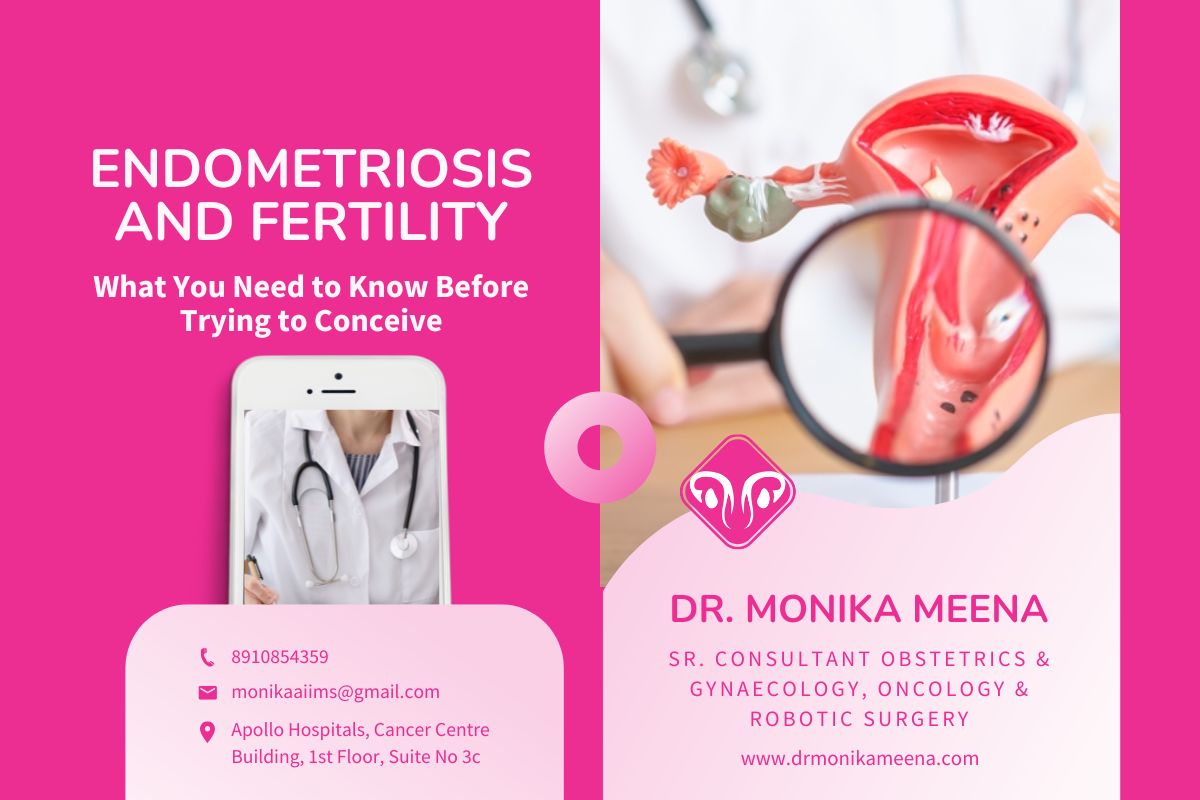
Endometriosis is a common yet complex gynecological condition where tissue similar to the lining of the uterus grows outside the womb. It can affect the ovaries, fallopian tubes, and the pelvic lining, often leading to pain, heavy periods, and in many cases—fertility issues. For women planning to start a family, understanding the relationship between endometriosis and fertility is essential.
How Does Endometriosis Affect Fertility?
Endometriosis can interfere with fertility in several ways:
- Blocked fallopian tubes: Scar tissue from endometrial growths can block the tubes, preventing the egg from meeting sperm.
- Poor egg quality: The inflammatory response associated with endometriosis may reduce egg quality and ovarian reserve.
- Disrupted ovulation: Hormonal imbalance or ovarian cysts (endometriomas) may hinder regular ovulation.
- Implantation issues: Even if fertilization occurs, endometriosis can create an environment where embryo implantation becomes difficult.
Women with moderate to severe endometriosis may experience a higher risk of infertility. However, many women with mild cases conceive naturally.
Recognizing the Signs Early
Symptoms of endometriosis often mimic other conditions, which can delay diagnosis. Common signs include:
- Painful or heavy periods
- Chronic pelvic pain
- Pain during intercourse
- Bloating and digestive issues
- Difficulty conceiving
If you’re experiencing any of these symptoms, it’s crucial to consult a qualified gynae lady doctor near you who can help with early diagnosis and management.
Diagnosis and Treatment Options
Diagnosis usually involves a combination of pelvic exams, ultrasounds, and sometimes laparoscopy for a definitive look. Treatment varies based on severity and your fertility goals:
- Medication: Hormonal treatments can relieve symptoms but may temporarily suppress ovulation.
- Robotic or Laparoscopic Surgery: Both are minimally invasive techniques used to remove endometrial implants and cysts, often improving fertility outcomes. Robotic surgery offers enhanced precision, reduced blood loss, and quicker recovery, while laparoscopic surgery is also effective in preserving fertility.
- Assisted Reproductive Techniques (ART): IVF may be advised, especially in cases of advanced endometriosis or when other treatments fail.
For specialized care, you may consult a gynae cancer doctor in Kolkata or an experienced ovarian cyst doctor in Kolkata, especially if cysts or complex lesions are involved.
When to Seek Expert Help
You should seek medical advice from the best gynaecologist in Kolkata if:
- You have been trying to conceive for 6–12 months without success.
- You experience pain during menstruation, heavy or irregular menstrual bleeding, chronic pelvic pain, or other symptoms of endometriosis.
Early diagnosis and timely treatment can make a significant difference to your fertility outcomes and overall quality of life.
Conclusion
Endometriosis can be challenging, but it doesn’t mean pregnancy is out of reach. With the right medical support and timely intervention, many women go on to have healthy pregnancies. Whether through lifestyle adjustments, advanced surgery, or assisted reproductive methods, hope is very much alive.
For expert guidance and compassionate care, consult Dr. Monika Meena, a trusted uterine cancer doctor in Kolkata and experienced gynae cancer specialist, offering advanced laparoscopic and robotic surgical options tailored to women planning conception.
Meet Dr Monika Meena

Dr Monika is an expert trained robotic gynae surgeon, oncosurgeon in Kolkata. Her main interest lies in robotic and minimal invasive gynaecology. She has the highest robotic cases to her credit amongst the female gynecologists in east India.
Read More

